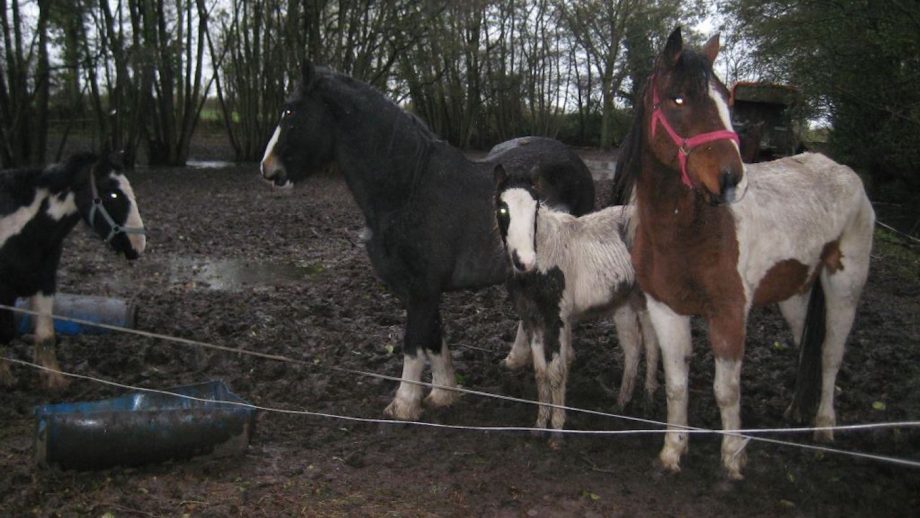The group of leading welfare charities has created a report including 40 recommendations to benefit animal welfare. H&H finds out more, including views on a recommendation to strengthen the Hunting Act
FURTHER restrictions on firework use, licensing of sanctuaries and regulation of equestrian premises are among recommendations of a coalition urging the Government to act on animal welfare.
In an “unprecedented” move, 50 welfare charities have united in calls for lawmakers not to waste a “once-in-a-generation opportunity to redefine our relationship with animals through a new animal health and welfare strategy”.
{"content":"PHA+VGhlIGdyb3VwLCB3aGljaCBpbmNsdWRlcyB0aGUgPGEgaHJlZj0iaHR0cHM6Ly93d3cuaG9yc2VhbmRob3VuZC5jby51ay90YWcvdGhlLWhvcnNlLXRydXN0Ij5Ib3JzZSBUcnVzdDwvYT4sIDxhIGhyZWY9Imh0dHBzOi8vd3d3LmhvcnNlYW5kaG91bmQuY28udWsvdGFnL3dvcmxkLWhvcnNlLXdlbGZhcmUiPldvcmxkIEhvcnNlIFdlbGZhcmU8L2E+IGFuZCA8YSBocmVmPSJodHRwczovL3d3dy5ob3JzZWFuZGhvdW5kLmNvLnVrL3RhZy9yZWR3aW5ncy1ob3JzZS1zYW5jdHVhcnkiPlJlZHdpbmdzLDwvYT4gaGFzIHB1Ymxpc2hlZCBhIHJlcG9ydCBlbnRpdGxlZCBBY3Qgbm93IGZvciBBbmltYWxzLCB3aGljaCBzZXRzIG91dCBpdHMgcHJpb3JpdGllcyBmb3IgY3JlYXRpbmcgYSBzb2NpZXR5IHRoYXQg4oCccmViYWxhbmNlc+KAnSB0aGUgd2F5IHdlIGxpdmUgYW5kIHdvcmsgd2l0aCBhbmltYWxzLjwvcD4KPHA+VGhlIHBhcGVyLCB3aGljaCBzdGF0ZXMg4oCcbm8gYW5pbWFsIGxlZnQgYmVoaW5k4oCdLCBzZXRzIG91dCA0MCByZWNvbW1lbmRhdGlvbnMuIFRoZSBob3BlIGlzIHRoYXQgaXQgd2lsbCBoZWxwIHRoZSBHb3Zlcm5tZW50IGNyZWF0ZSBhIG5ldyBhbmltYWwgd2VsZmFyZSBzdHJhdGVneTsgdGhlIGxhc3Qgc3VjaCBwbGFuIGlzIDE3IHllYXJzIG9sZCBhbmQgdGhlIGxhbmRzY2FwZSBoYXMgY2hhbmdlZCBzaWduaWZpY2FudGx5IGluIHRoYXQgdGltZSwgYnJpbmdpbmcg4oCcbmV3IGFuZCB1cmdlbnQgY2hhbGxlbmdlc+KAnS48L3A+CjxwPkEga2V5IHJlY29tbWVuZGF0aW9uIGlzIHRoYXQgdGhlIG5ldyBHb3Zlcm5tZW50IGFuaW1hbCBzZW50aWVuY2UgY29tbWl0dGVlIG11c3QgaGF2ZSDigJxyZWFsIHRlZXRo4oCdLCBiZSBpbmRlcGVuZGVudGx5IGNoYWlyZWQsIGNvbXByaXNlIGxlYWRpbmcgd2VsZmFyZSBleHBlcnRzIGFuZCBoYXZlIHRoZSBhYmlsaXR5IHRvIOKAnG1lYW5pbmdmdWxseSBob2xkIG1pbmlzdGVycyB0byBhY2NvdW504oCdLjwvcD4KPHA+PGRpdiBjbGFzcz0iYWQtY29udGFpbmVyIGFkLWNvbnRhaW5lci0tbW9iaWxlIj48ZGl2IGlkPSJwb3N0LWlubGluZS0yIiBjbGFzcz0iaXBjLWFkdmVydCI+PC9kaXY+PC9kaXY+PHNlY3Rpb24gaWQ9ImVtYmVkX2NvZGUtMzEiIGNsYXNzPSJoaWRkZW4tbWQgaGlkZGVuLWxnIHMtY29udGFpbmVyIHN0aWNreS1hbmNob3IgaGlkZS13aWRnZXQtdGl0bGUgd2lkZ2V0X2VtYmVkX2NvZGUgcHJlbWl1bV9pbmxpbmVfMiI+PHNlY3Rpb24gY2xhc3M9InMtY29udGFpbmVyIGxpc3RpbmctLXNpbmdsZSBsaXN0aW5nLS1zaW5nbGUtc2hhcmV0aHJvdWdoIGltYWdlLWFzcGVjdC1sYW5kc2NhcGUgZGVmYXVsdCBzaGFyZXRocm91Z2gtYWQgc2hhcmV0aHJvdWdoLWFkLWhpZGRlbiI+DQogIDxkaXYgY2xhc3M9InMtY29udGFpbmVyX19pbm5lciI+DQogICAgPHVsPg0KICAgICAgPGxpIGlkPSJuYXRpdmUtY29udGVudC1tb2JpbGUiIGNsYXNzPSJsaXN0aW5nLWl0ZW0iPg0KICAgICAgPC9saT4NCiAgICA8L3VsPg0KICA8L2Rpdj4NCjwvc2VjdGlvbj48L3NlY3Rpb24+PC9wPgo8cD48YSBocmVmPSJodHRwczovL3d3dy5ob3JzZWFuZGhvdW5kLmNvLnVrL3RhZy90aGUtYnJvb2tlIj5Ccm9va2UgQWN0aW9uIGZvciBXb3JraW5nIEhvcnNlcyBhbmQgRG9ua2V5czwvYT4gQ0VPIENocmlzIFdhaW53cmlnaHQgc2FpZDog4oCcV2UgYWxsIGhhdmUgYSByb2xlIHRvIHBsYXkgaW4gaG93IHdlIGxpdmUgYWxvbmdzaWRlIGFuZCBjcmVhdGUgYSBiZXR0ZXIgbGlmZSBmb3IgYW5pbWFscy48L3A+CjxwPuKAnEl0IGlzIGFic29sdXRlbHkgdml0YWwgdGhhdCBhbGwgYW5pbWFscyBhcmUgcmVjb2duaXNlZCBhcyBzZW50aWVudCBiZWluZ3MsIGFuZCB0aGF0IGEgcmlnb3JvdXMgYXBwcm9hY2ggdG8gaW1wcm92aW5nIGFuaW1hbCBoZWFsdGggYW5kIHdlbGZhcmUgaXMgcmVjb2duaXNlZCBub3QganVzdCBmb3IgaXRzIGJlbmVmaXQgdG8gdGhlbSwgYnV0IGFsc28gZm9yIGl0cyBjb25uZWN0aW9uIHRvIGh1bWFuIGhlYWx0aC7igJ08L3A+CjxwPkFub3RoZXIgcmVjb21tZW5kYXRpb24gaXMgdG8gZW5zdXJlIGVxdWluZSBpZGVudGlmaWNhdGlvbiBpcyDigJxlbmZvcmNlZCBlZmZlY3RpdmVseSBmb3IgdGhlIGZpcnN0IHRpbWUgaW4gMTIgeWVhcnPigJ0sIGJ5IGludHJvZHVjaW5nIGEgc3RhdHV0b3J5IG9ibGlnYXRpb24gdG8gZW5mb3JjZSBydWxlcywgcmVxdWlyaW5nIHJlZ2lzdHJhdGlvbiBvZiBlcXVpbmUgcHJlbWlzZXMgYW5kIG1ha2luZyBib3RoIG93bmVyIGFuZCBrZWVwZXIgb2YgYSBob3JzZSByZXNwb25zaWJsZSBmb3Iga2VlcGluZyB0aGUgR292ZXJubWVudOKAmXMgZGlnaXRhbCBlcXVpbmUgZGF0YWJhc2UgdXAgdG8gZGF0ZS48L3A+CjxkaXYgY2xhc3M9ImFkLWNvbnRhaW5lciBhZC1jb250YWluZXItLW1vYmlsZSI+PGRpdiBpZD0icG9zdC1pbmxpbmUtMyIgY2xhc3M9ImlwYy1hZHZlcnQiPjwvZGl2PjwvZGl2Pgo8cD5Xb3JsZCBIb3JzZSBXZWxmYXJlIENFTyBSb2x5IE93ZXJzIHNhaWQ6IOKAnFdlIGFyZSBmYXN0IGVudGVyaW5nIHRoZSBsYXN0IGNoYW5jZSBzYWxvb24gdG8gY3JlYXRlIGEgZnJpY3Rpb25sZXNzLCBkaWdpdGlzZWQgc3lzdGVtIGZvciBlcXVpbmUgaWRlbnRpZmljYXRpb24sIHNvbWV0aGluZyB3ZSBoYXZlIGJlZW4gaGlnaGxpZ2h0aW5nIGZvciBuZWFybHkgYSBkZWNhZGUuIFRoaXMgaXMgYSBmdW5kYW1lbnRhbCByZXF1aXJlbWVudCBmb3IgYWxsIG90aGVyIGVxdWluZSB3ZWxmYXJlIGxlZ2lzbGF0aW9uIHRvIHdvcmsgYW5kIHdlIG5vdyBmaW5hbGx5IGhhdmUgdGhlIG9wcG9ydHVuaXR5IHRvIG1ha2UgdGhpcyBoYXBwZW4sIGlmIEdvdmVybm1lbnQgc2hvd3MgdGhlIHBvbGl0aWNhbCB3aWxsLjwvcD4KPHA+4oCcQW4gZWZmZWN0aXZlIGVxdWluZSBJRCBzeXN0ZW0gaXMgYWxzbyBpbmV4dHJpY2FibHkgbGlua2VkIHRvIHRoZSBvdGhlciB2aXRhbCBwaWVjZSBvZiB0aGUgamlnc2F3OiBlZmZlY3RpdmUgZW5mb3JjZW1lbnQsIGFuZCB0aGlzIHRvbyB3aWxsIG5lZWQgdGhlIHBvbGl0aWNhbCB3aWxsIHRvIGVuc3VyZSBhIHJlYWxpc3RpYyBhbGxvY2F0aW9uIG9mIHJlc291cmNlcyBmb3IgbG9jYWwgYXV0aG9yaXRpZXMgdG8gZnVsZmlsIHRoaXMgcm9sZS7igJ08L3A+CjxkaXYgY2xhc3M9ImFkLWNvbnRhaW5lciBhZC1jb250YWluZXItLW1vYmlsZSI+PGRpdiBpZD0icG9zdC1pbmxpbmUtNCIgY2xhc3M9ImlwYy1hZHZlcnQiPjwvZGl2PjwvZGl2Pgo8cD5UaGUgcmVwb3J0IGhpZ2hsaWdodHMgdGhlIGZhY3QgTmF0aW9uYWwgRXF1aW5lIFdlbGZhcmUgQ291bmNpbCBtZW1iZXJzIHRvb2sgaW4gMTg2IGVxdWlkcyBmcm9tIHN0cnVnZ2xpbmcgc2FuY3R1YXJpZXMgb3IgcmVzY3VlIGNlbnRyZXMgaW4gMjAxOSwgYW5kIHRoYXQgYWxtb3N0IG9uZSBpbiBmaXZlIGVxdWluZSB2ZXRzIGRlYWx0IHdpdGggZmlyZXdvcmstcmVsYXRlZCBpbmp1cmllcyB0byBhIGhvcnNlIGluIDIwMTguIFR3byByZWNvbW1lbmRhdGlvbnMgYXJlIHRvIGludHJvZHVjZSBsaWNlbnNpbmcgYW5kIGluc3BlY3Rpb25zIG9mIGFsbCBzYW5jdHVhcmllcyBpbiBFbmdsYW5kIGFuZCBXYWxlcywgYW5kIHRvIHJldmlldyBmaXJld29ya3MgbGVnaXNsYXRpb24gYW5kIGZpcmV3b3Jrc+KAmSBpbXBhY3Qgb24gYW5pbWFsIHdlbGZhcmUsIHdpdGggYSB2aWV3IHRvIGludHJvZHVjaW5nIGZ1cnRoZXIgcmVzdHJpY3Rpb25zIG9uIHVzZSBhbmQgc2FsZS48L3A+CjxwPkhvcnNlIFRydXN0IENFTyBKZWFuZXR0ZSBBbGxlbiBzYWlkOiDigJxUaGVyZSBpcyBubyBkb3VidCB3ZSBhcmUgc3Ryb25nZXIgd2l0aCBvbmUgdm9pY2UgYW5kIHRoaXMgaW5jcmVkaWJsZSBjb2xsYWJvcmF0aXZlIGVmZm9ydCBjb3VsZCBhZmZlY3QgdmVyeSByZWFsIGNoYW5nZSB0byBHb3Zlcm5tZW50IHBvbGljeSBhbmQgZnV0dXJlIGxlZ2lzbGF0aW9uIHRoYXQgcHJvdGVjdHMgYW5pbWFscy4gVGhlIEhvcnNlIFRydXN0IGlzIHZlcnkgcHJvdWQgdG8gaGF2ZSB0YWtlbiBwYXJ0IGFuZCBjb250cmlidXRlZCBvdXIgZXhwZXJ0aXNlLuKAnTwvcD4KPGRpdiBjbGFzcz0iYWQtY29udGFpbmVyIGFkLWNvbnRhaW5lci0tbW9iaWxlIj48ZGl2IGlkPSJwb3N0LWlubGluZS01IiBjbGFzcz0iaXBjLWFkdmVydCI+PC9kaXY+PC9kaXY+CjxwPlRoZSByZXBvcnQgYWxzbyByZWNvbW1lbmRzIGJhbm5pbmcgbGl2ZSBleHBvcnQgb2YgaG9yc2VzIGZvciBzbGF1Z2h0ZXIgb3IgZmF0dGVuaW5nLCBhbmQgaW50cm9kdWNpbmcgYSAxMi1ob3VyIGpvdXJuZXkgbGltaXQgZm9yIGhvcnNlcy48L3A+CjxwPlRoZSBmaW5hbCByZWNvbW1lbmRhdGlvbiBpcyBmb3IgdGhlIEdvdmVybm1lbnQgdG8gZW5zdXJlIHRoYXQgZW5mb3JjZW1lbnQgaXMgYSBzdGF0dXRvcnkgb2JsaWdhdGlvbiBpbiBhbnkgbmV3IGxhd3MsIGFzIOKAnGxlZ2lzbGF0aW9uIGlzIGEgZ2xvcmlmaWVkIGFuZCBjb3N0bHkgcGllY2Ugb2YgcGFwZXIgd2l0aG91dCBlbmZvcmNlbWVudCwgYW5kIGEgd2FzdGVkIHBpZWNlIG9mIHBhcGVyIGlmIGl0IGRvZXNu4oCZdCBkZWxpdmVyIGl0cyBvYmplY3RpdmVz4oCdLjwvcD4KPGgzPkh1bnRpbmcgY29uY2VybnM8L2gzPgo8cD5DT05DRVJOUyBoYXZlIGJlZW4gcmFpc2VkIGFib3V0IG9uZSBzZWN0aW9uIG9mIHRoZSByZXBvcnQgcHV0IHRvIHRoZSBHb3Zlcm5tZW50IChzZWUgYWJvdmUpLjwvcD4KPHA+T25lIG9mIHRoZSA1MCBncm91cHMgaW52b2x2ZWQgaW4gdGhlIGNvYWxpdGlvbiBpcyB0aGUgTGVhZ3VlIEFnYWluc3QgQ3J1ZWwgU3BvcnRzIChMQUNTKSDigJMgYW5kIG9uZSByZWNvbW1lbmRhdGlvbiBpcyBoZWFkZWQg4oCcc3RyZW5ndGhlbmluZyB0aGUgSHVudGluZyBBY3TigJ0uPC9wPgo8cD5UaGUgc2VjdGlvbiBzdGF0ZXMgdGhhdCB0cmFpbCBodW50aW5nIOKAnHByb3ZpZGVzIGNvdmVyIGZvciBpbGxlZ2FsIGh1bnRpbmfigJ0gYW5kIHRoYXQg4oCcZm94IGh1bnRpbmcgaXMgb3Bwb3NlZCBieSA4NSUgb2YgdGhlIHB1YmxpY+KAnSwgcmVmZXJyaW5nIHRvIGEgTEFDUy1jb21taXNzaW9uZWQgcG9sbCBvZiAyLDAwMyBwZW9wbGUuPC9wPgo8cD5UaGUgcmVwb3J0IHNheXMgdHJhaWwtaHVudGluZyBzaG91bGQgYmUgYmFubmVkIG9uIEdvdmVybm1lbnQtb3duZWQgbGFuZCwgYW5kIGFuIG9mZmVuY2Ugb2YgcmVja2xlc3NseSBodW50aW5nIGEgd2lsZCBhbmltYWwgc2hvdWxkIGJlIGludHJvZHVjZWQsIHdpdGggcHJpc29uIHNlbnRlbmNlcyBhbmQgYSBsaWFiaWxpdHkgcHJvdmlzaW9uIHRvIGNvdmVyIGVtcGxveWVycyBhbmQgbGFuZG93bmVycy48L3A+CjxwPkEgQ291bnRyeXNpZGUgQWxsaWFuY2Ugc3Bva2VzbWFuIHRvbGQgPGVtPkgmYW1wO0g8L2VtPjog4oCcTEFDUyBoYXMgc3BlbnQgdGhlIGxhc3QgMTggeWVhcnMgbWFraW5nIHJpZGljdWxvdXMgY2xhaW1zIGFib3V0IGh1bnRpbmcsIHlldCBuZWFybHkgZXZlcnkgdGltZSBpdCBtYWtlcyBhbGxlZ2F0aW9ucyB0byB0aGUgcG9saWNlIG9yIGEgY291cnQsIHRoZXkgYXJlIGZvdW5kIHRvIGJlIGZhbHNlLiBUaGVyZSBoYXZlIGJlZW4gaHVuZHJlZHMgb2YgdGhvdXNhbmRzIG9mIGRheXPigJkgbGVnYWwgdHJhaWwgaHVudGluZyBzaW5jZSB0aGUgSHVudGluZyBBY3QgY2FtZSBpbnRvIGZvcmNlIGFuZCBvbmx5IGEgaGFuZGZ1bCBvZiBjb252aWN0aW9ucyByZWxhdGluZyB0byByZWdpc3RlcmVkIGh1bnRzLjwvcD4KPGRpdiBjbGFzcz0iaW5qZWN0aW9uIj48L2Rpdj4KPHA+4oCcVGhlIGZpZ3VyZXMgcHJlc2VudGVkIGJ5IExBQ1MgY2Fubm90IGJlIHRha2VuIGF0IGZhY2UgdmFsdWUgc2luY2UgdGhleSB3ZXJlIGNvbXBpbGVkIGZyb20gTEFDU+KAmSBvd24g4oCYYW5pbWFsIGNyaW1ld2F0Y2ggc2VydmljZeKAmSwgd2hpY2ggb2Z0ZW4gY29uc2lzdHMgb2YgZHViaW91cyByZXBvcnRzIGZyb20gYWxsZWdlZCBtZW1iZXJzIG9mIHRoZSBwdWJsaWMsIGFzIHdlbGwgYXMgc3B1cmlvdXMgZXZpZGVuY2UgZ2F0aGVyZWQgZnJvbSBzb2NpYWwgbWVkaWEuIFRpbWUgYW5kIHRpbWUgYWdhaW4sIHRoaXMgZXZpZGVuY2UgaXMgcHJvdmVuIHRvIHBhaW50IGEgZmFsc2UgcGljdHVyZSBvZiByZWFsaXR5IGFuZCBsYWNrcyBhbnkgYXBwcm9wcmlhdGUgY29udGV4dC7igJ08L3A+CjxwPgo="}
You might also be interested in…
Stay in touch with all the news in the run-up to and throughout the major shows and events during 2026 and beyond with a Horse & Hound subscription. Subscribe today for all you need to know ahead of these major events, plus online reports on the action as it happens from our expert team of reporters and in-depth analysis in our special commemorative magazines. Have a subscription already? Set up your unlimited website access now
H&H news editor
Eleanor is an experienced journalist who spent over eight years working for local and national newspapers before joining H&H as news editor in March 2016. Passionate about equine welfare and exposing the truth, Eleanor has reported on all aspects of the industry, from Brexit to anti-bullying campaigns, and from dressage rules to mules. Her sport of choice is showjumping, in which she competes her own horses, and she also enjoys reporting at local jumping shows through to international championships.






